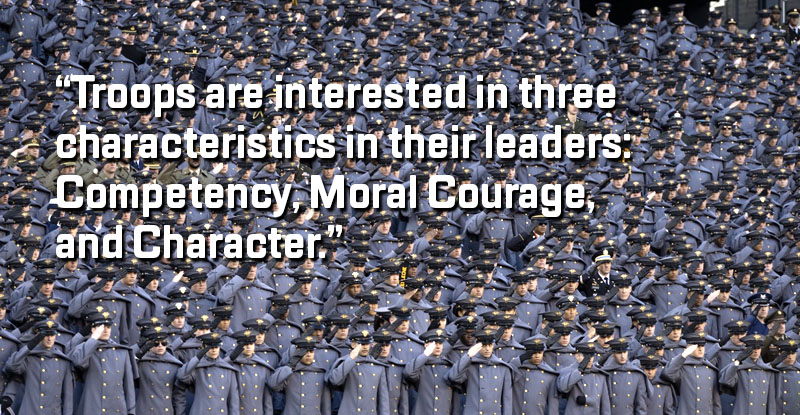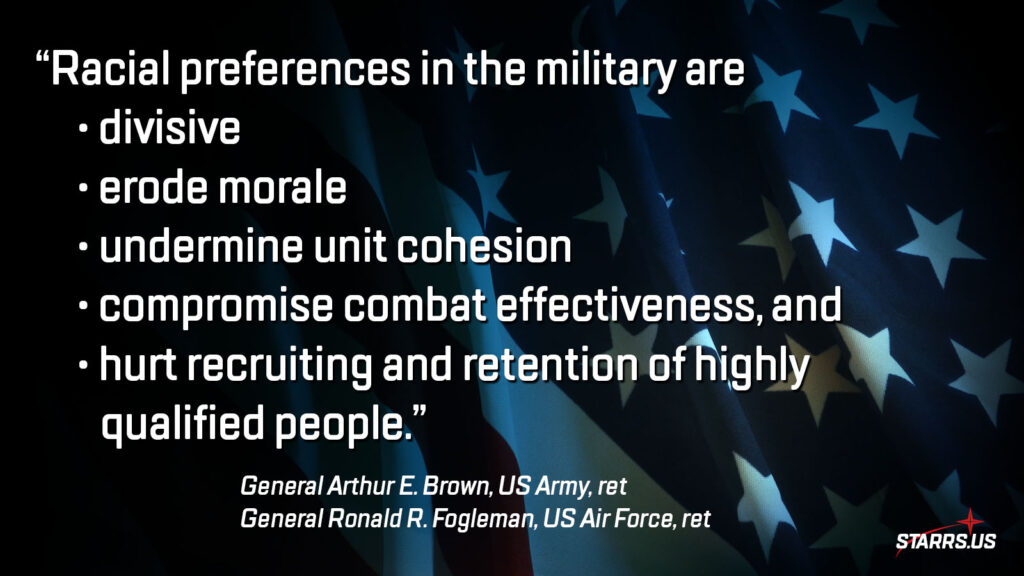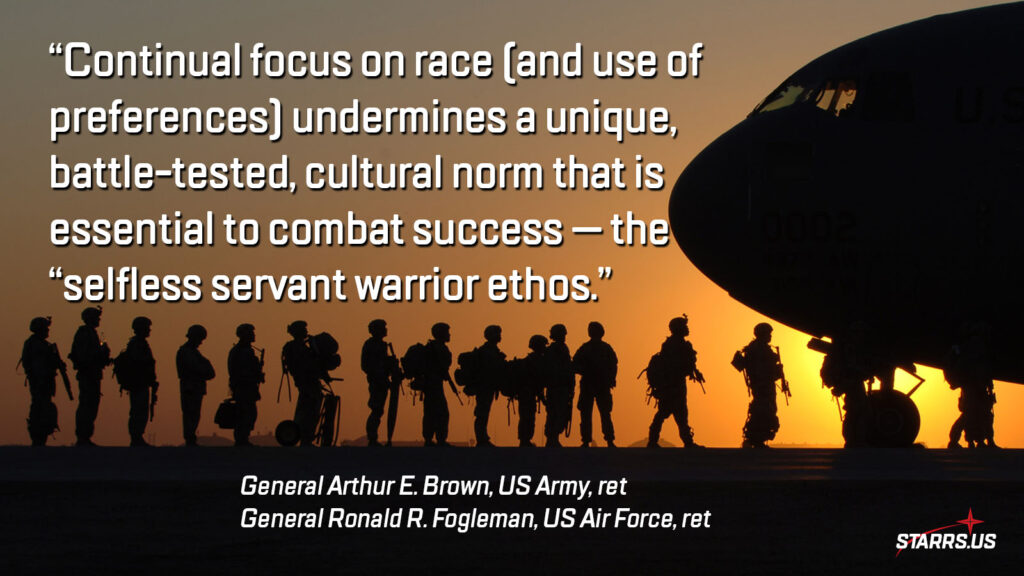By Gen. Arthur E. Brown Jr., U.S. Army, retired, former Army vice chief of staff, former deputy superintendent of the U.S. Military Academy at West Point, and West Point graduate,
and Gen. Ronald R. Fogleman, U.S. Air Force, retired, former Air Force chief of staff and U.S. Air Force Academy graduate
During oral argument in the college admissions racial preferences cases (Students for Fair Admissions v. Harvard/UNC), Supreme Court Chief Justice John Roberts inquired of United States Solicitor General Elizabeth Prelogar whether the service academies should “rise or fall” with the court’s ruling regarding Harvard and the University of North Carolina.
The solicitor general, joined by the Department of Defense (DOD) general counsel, had claimed in briefing that the continued use of racial preferences at the service academies is a “national security imperative,” prompting the question.
The chief justice asked, effectively, whether DOD seeks an exemption for the military from any ruling against Harvard and UNC banning racial preferences’ further use. Prelogar’s replies fell short of asking for a military carveout, but she left the door open, reiterating the military’s alleged “distinctive interests” in using racial preferences and her claims that they are a “truly compelling interest” and “critically important” for the military.
Not addressed in rebuttal arguments were the reasons why there is no compelling national security imperative and how racial preferences are harming our military.
DOD surrogates have made the extraordinary claim that officer-enlisted racial demographic parity, pursued by using racial preferences in military officer accession programs such as the service academies and ROTC, is essential to national security.
But their evidence, inappositely grounded in our Vietnam experience, is lacking.
This far-fetched argument was first made in the 2003 case Grutter v. Bollinger, which the current court has been asked to overrule. It was contrived to meet the high legal bar (“compelling national interest”) that “strict scrutiny” of extra-constitutional practices requires be proved to justify the suspension of the constitutional provision in question, here the equal protection clause.
The claim is disproved by the last two generations of our military’s more relevant history. Lest there be any doubt, America can be defended without suspending the equal protection clause.
Warfighters respond to their leaders’ orders regardless of racial differences. They do, however, need and deserve the best-qualified leaders, regardless of race.
Our experiences commanding at platoon, company, battalion, and brigade (Gen. Brown) and at wing, air division, numbered air force, major command, and combatant command (Gen. Fogleman) levels led us to conclude that the troops are interested in three characteristics in their leaders: competency, moral courage, and character.
The color of a leader’s skin or ethnicity is not what determines unit morale, esprit, and effectiveness.
DOD Practice Undermines Claim
DOD’s current practice also undermines its claim. If DOD’s argument were sincere, the Army’s monthly Unit Status Report (Army Regulation 220-1, Chapter 5) would require reporting officer-enlisted racial demographics in military units.
Designed to facilitate Pentagon monitoring of operational units’ readiness, and revised as recently as August of 2022, all personnel reporting metrics are silent about racial demographics.
That’s because the Army knows officer racial diversity is irrelevant to combat effectiveness and readiness.
Military officer racial diversity would still exist without preferences. According to DOD in 2020, Army (our largest service) active-duty officers were 27 percent racial minority (12.3 percent black). Highly qualified minority officers have been part of our military’s success for many decades.
Beginning in World War II, increasingly large numbers of outstanding minority officers have served in our military, many — on the basis of merit — reaching flag-officer rank.
Today, minority outreach and recruiting programs reach many highly qualified minorities, and, with augmentation, would attract minorities in even greater numbers, without the need for demeaning preferences.
Racial Preferences Are Divisive
Racial preferences in the military are divisive, erode morale, undermine unit cohesion, compromise combat effectiveness, and hurt recruiting and retention of highly qualified people.
Experience at West Point has shown they are costly, dilute merit, and thus degrade leader quality.
The best-qualified officers want to serve but also want to be treated equally and fairly on the basis of merit.
Also, they know even slight differences in leader quality can determine mission success or failure and life or death.
Continual focus on race (and use of preferences) undermines a unique, battle-tested, cultural norm that is essential to combat success — the “selfless servant warrior ethos.”
Warfighters must totally subordinate the self (including subgroup identities) and unqualifiedly commit to the mission and teammates regardless of racial differences.
Trust that such commitment is uniformly reciprocal is the glue that binds warfighters into teams, a sine qua non for unit cohesion and effectiveness in lethal combat.
A military carveout would also offend our republic’s founding principles.
Public trust and support for the military would erode if the military, alone, were to operate in open contradiction of a standard so fundamental as race-neutral, equal protection of the law. This is especially true given our military’s performance in the last 40 years, where there is no evidence that officer racial demographics have affected combat effectiveness.
The public disfavors racial preferences (74 percent, including a majority of blacks, oppose their use in college admissions).
Under those circumstances, allowing the unnecessary, dangerous, and extra-constitutional use of racial preferences in service academy admissions would undermine the public’s critically important trust.
Solicitor General Prelogar wisely declined the invitation to request a military carveout. Our nation would be better served if the court were to require our service academies, along with Harvard and UNC, to adhere to race-neutral, equal protection of the law.
–
First published in The Federalist










Leave a Comment